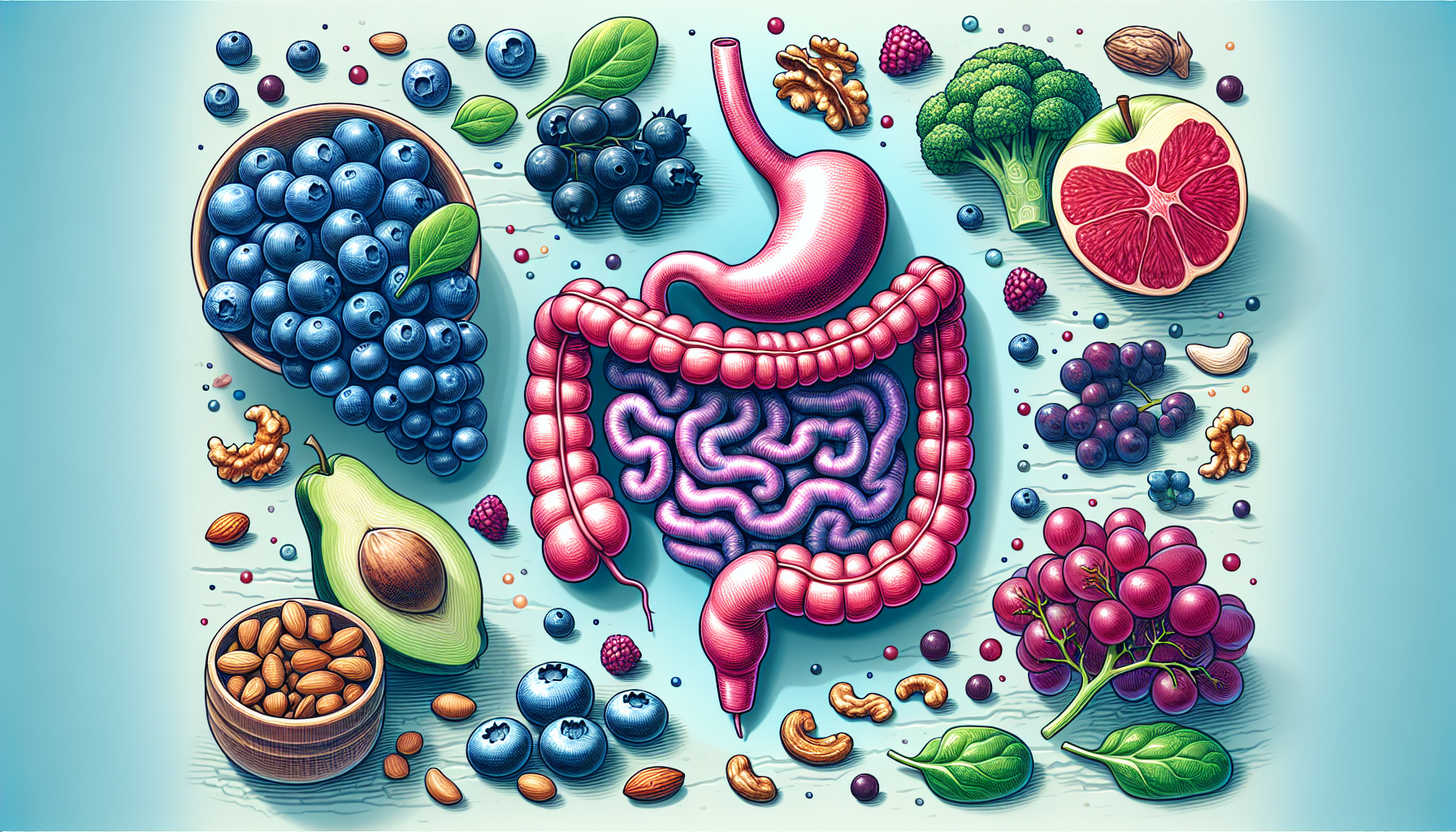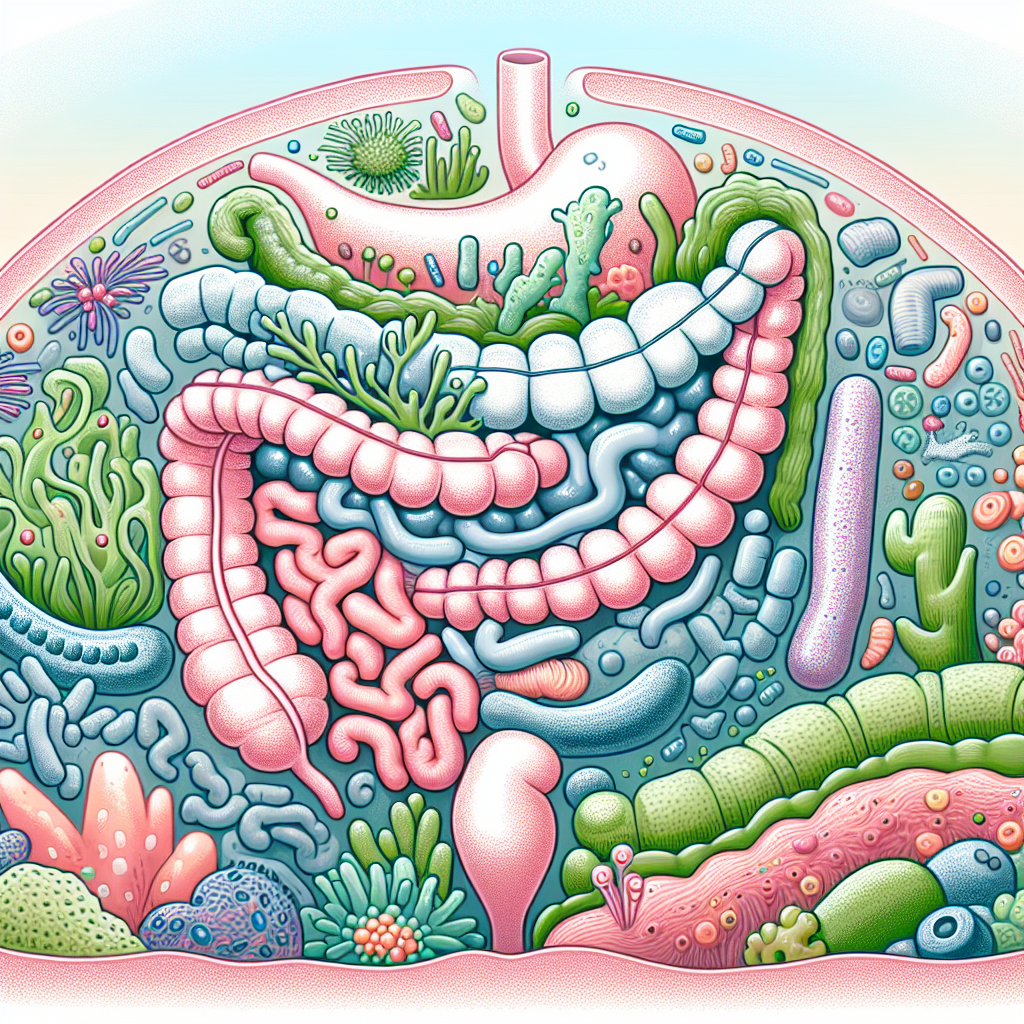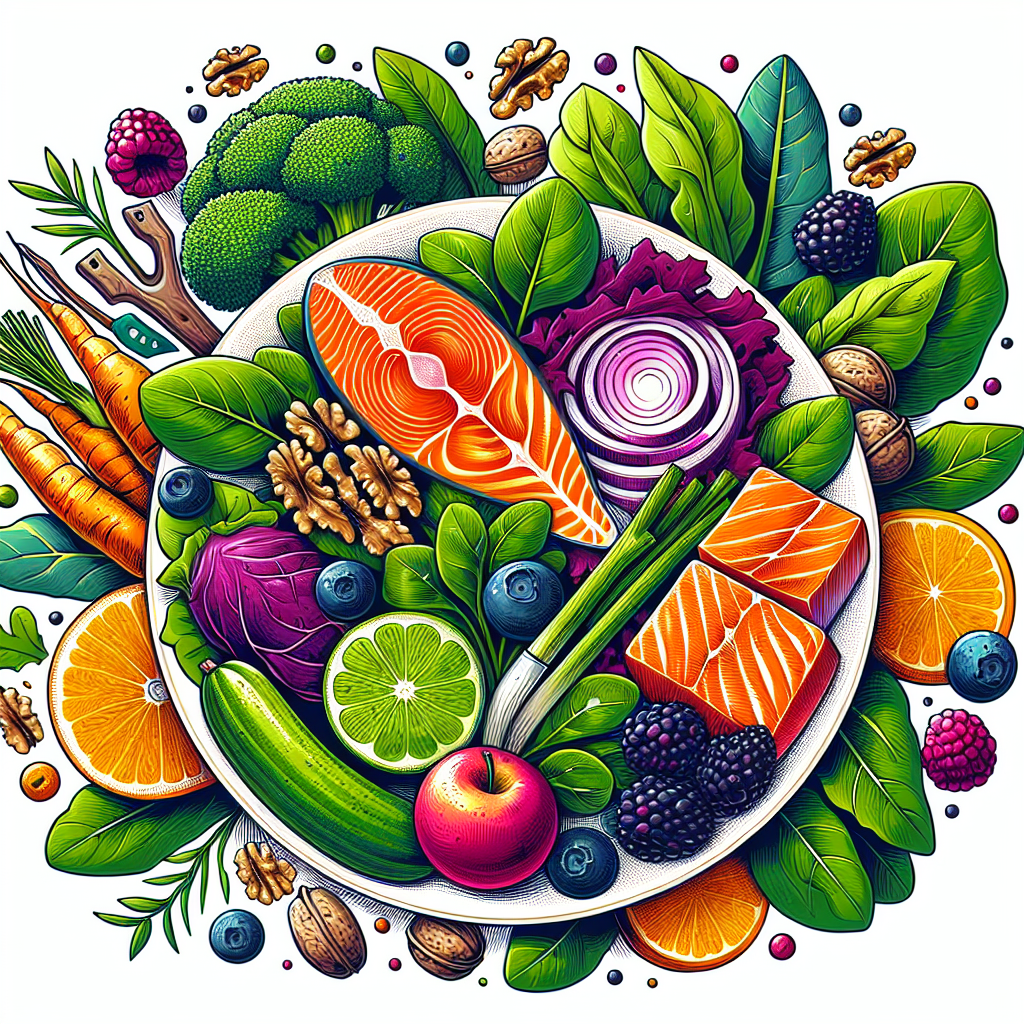In the pursuit of optimal health, the gut is an ecosystem that demands attention. The gastrointestinal tract is not only responsible for digestion but also plays a critical role in our immune system, mental health, and overall well-being. One of the key elements that support gut health is the consumption of dietary antioxidants. These powerful compounds are found in a variety of foods and have been shown to combat oxidative stress, which if left unchecked, can lead to a cascade of health issues including gut inflammation and impaired function.
Understanding Antioxidants and Their Gut-Protective Mechanisms
Antioxidants are molecules that inhibit the oxidation of other molecules. Oxidation is a chemical reaction that can produce free radicals, leading to chain reactions that may damage cells. Antioxidants such as vitamins C and E, selenium, and carotenoids help protect cells from this damage.
In the context of gut health, antioxidants play a significant role in maintaining the integrity of the gut lining, which is crucial in preventing unwanted substances from entering the bloodstream. They also modulate gut inflammation, thereby influencing the risk and severity of inflammatory bowel diseases (IBD), such as Crohn’s disease and ulcerative colitis.
The Impact of Antioxidant-Rich Foods on Gut Microbiota
The gut microbiota, which comprises trillions of microorganisms including bacteria, viruses, and fungi, is essential for digestive wellness. Antioxidants from dietary sources can influence the composition and function of these microorganisms in beneficial ways. For instance, polyphenols—antioxidants found in fruits, vegetables, tea, and wine—can promote the growth of beneficial bacteria while inhibiting harmful ones.
To delve deeper into the intricacies of gut health, reading about digestive health can provide more comprehensive insights into how dietary antioxidants interact with various aspects of the gastrointestinal system.
Sources of Dietary Antioxidants
A diet rich in fruits, vegetables, whole grains, nuts, and seeds is an excellent source of antioxidants. Berries, leafy greens, and brightly colored peppers are particularly high in these compounds. Here are some food groups that are known for their high antioxidant content:
- Berries: Strawberries, blueberries, and blackberries are packed with vitamin C and anthocyanins.
- Nuts and Seeds: Almonds, walnuts, and flaxseeds contain vitamin E and selenium.
- Leafy Greens: Spinach, kale, and swiss chard are loaded with beta-carotene and lutein.
- Cruciferous Vegetables: Broccoli, cauliflower, and brussels sprouts offer sulforaphane and flavonoids.
For those looking into the effects of specific dietary habits, exploring how to support gut health during antibiotic use, understanding the impact of soluble and insoluble fiber, or learning about the role of chronic inflammation in gut diseases can provide valuable context and insights.
Antioxidants and Digestive Disorders
Ongoing research suggests that diets high in antioxidants may be particularly beneficial for individuals suffering from digestive disorders. For example, oxidative stress has been implicated in the pathogenesis of gastroesophageal reflux disease (GERD), peptic ulcers, and even gastrointestinal cancers.
The therapeutic potential of antioxidants in these conditions is supported by studies such as those found on The National Center for Biotechnology Information (NCBI), which provides a repository of research articles detailing the effects of dietary antioxidants on various gut-related diseases.
The Synergy Between Antioxidants and Other Nutrients
Antioxidants don’t work in isolation. They often work synergistically with other nutrients to promote gut health. For example, the antioxidant properties of vitamin E can be enhanced when combined with vitamin C. There’s also a close relationship between antioxidants and minerals like zinc and selenium, which are essential for the proper functioning of antioxidant enzymes.
For an in-depth understanding of the interplay between different nutrients, resources like The Linus Pauling Institute’s Micronutrient Information Center offer a wealth of information on how vitamins, minerals, and phytochemicals interact to support gut health and overall well-being.
Practical Tips for Integrating Antioxidants Into Your Diet
- Eat a Rainbow: Incorporate a variety of colorful fruits and vegetables into your meals to ensure a wide range of antioxidants.
- Choose Whole Grains: Opt for whole grains over refined ones to benefit from their higher antioxidant content.
- Sip Wisely: Green tea and certain herbal teas are excellent sources of polyphenols.
- Spice it Up: Many spices, such as turmeric and cinnamon, have potent antioxidant properties.
Monitoring Antioxidant Intake for Optimal Gut Health
While increasing your antioxidant intake can be beneficial, it’s important to monitor how your body responds. Excessive consumption of certain antioxidants may lead to imbalances and should be avoided. Consulting with a healthcare professional, particularly if you have a pre-existing gut condition, is always recommended.
For those interested in personalized dietary advice, resources such as EatRight.org, the official website of the Academy of Nutrition and Dietetics, provide access to registered dietitian nutritionists who can tailor antioxidant-rich diets to individual health needs.
Conclusion
The role of dietary antioxidants in supporting gut health is an area of nutrition that holds the promise of significant health benefits. By understanding the sources and functions of antioxidants, and by integrating them into a balanced diet, we can take proactive steps towards maintaining a healthy gut and improving our overall quality of life. Remember to consult with healthcare professionals when making significant changes to your diet or if you have health concerns. By doing so, you can ensure that your antioxidant intake is optimized for your personal health needs.



